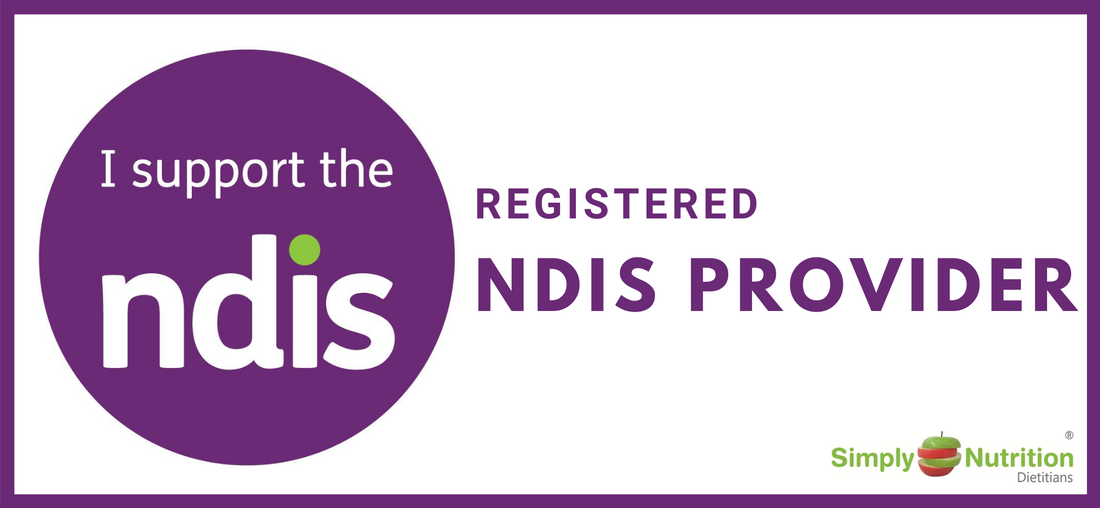 Is a dietitian and nutritionist the same thing? The main difference between a dietitian and a nutritionist is that a dietitian has undertaken complex and extensive studies under supervision involving clinical nutrition, human nutrition, food service management and medical nutrition therapy.1 As a result of their substantial studies, a dietitian is considered a dietitian and a nutritionist, however a nutritionist without a degree in dietetics cannot practice as a dietitian.1 Does a dietitian only help with weight loss? No, a dietitian is trained in many areas of human nutrition and assists people in understanding the relationship between diet and disease. A dietitian can provide you advice on a wide range of topics including but not limited to:
Do dietitians put people on ‘Diets’? No, a dietitian helps you to implement healthy lifestyle choices and works with you to ensure their recommendations fit in with your likes/dislikes and more importantly your life!! Is a dietitian going to ask me to make a lot of changes all at once? No, a dietitian works with you to make a series of small changes over a period of time. They may even ask you to do only 1 thing per week!! It is important to make sure you tell the dietitian if you are having trouble implementing a change as they can provide you with the support to make healthy choices easier choices. Do all dietitians have a perfect diet, free from all unhealthy foods? No, they still have taste buds!! The reason most dietitians have chosen their profession is because they have a love for food! They believe in moderation and incorporating a wide variety of foods into the diet (yes including chocolate and wine!) along with an active lifestyle. References:
1. Dietitians Association of Australia. Becoming a Dietitian. 2010. [cited 2011 January 19] Available from: http://www.daa.asn.au/index.asp?pageID=2145833487
0 Comments
 Diverticular Disease affects the lining of the bowel in the large intestine or colon wall resulting in small pouches that protrude outward from the colon wall called diverticula. One in three Australians over 45 and two in three Australians over 85 have some form of diverticular disease. Sometimes the diverticula can become inflamed and when this occurs it is known as diverticulitis. Only about one quarter of individuals who have diverticular disease will suffer from inflammation or diverticulitis. A low fibre diet is one of the major risk factors for developing diverticular disease. Why is fibre important A low fibre diet can lead to constipation. This makes stools hard and compact requiring more pressure and strain to push them along the colon. This pressure can lead to the formation of pouches or diverticula forming along the colon wall. When is a low fibre diet necessary? During treatment of diverticulitis, the focus is on clearing up the infection and inflammation. It is important to rest the bowel during this time. This involves following a low fibre diet (including the temporary removal of nuts and seeds from the diet) during the period of inflammation and infection. How can a Simply Nutrition Diettitian help prevent Diverticulitis? 1. Recommend the correct daily fibre intake 2. Give you guidance on when to consume fibre 3. Recommend the correct amount of fluid intake 4. Provide you with the correct information and debunk the myths surrounding diverticulitis – such as, is it okay to eat nuts and seeds. For more information and or help with Diverticular Disease please call 07 5473 9913 or email us here The Australian Guide to Healthy Eating is a visual representation of the five food groups that are recommended for consumption each day. Recently this guide was updated. Below we have summarized some of these changes for you. The New Australian Guide to Healthy Eating –
The new guide also has a stronger focus on –
Please note that the Australian Guide to Healthy Eating is a general guide only, an Accredited Practising Dietitian can ensure individuals are consuming adequate amounts of each food group for their needs. Feel free to contact Simply Nutrition Dietitians on 0439 757 642 or email for more information. Source: www.eatforhealth.gov.au Many people take vitamin and mineral supplements everyday – in fact Australians spend $500 million on dietary supplements annually – most of which is on vitamin supplements. But just because they are popular does that necessarily mean they are useful? And should we all be topping up our diets a little with a pill here and there for optimal health?
What do they actually do? Our body needs over 50 different nutrients for good health. Vitamins are essential for many of the chemical reactions that occur in our bodies, and minerals (which include iron, calcium and zinc) affect our health through their roles in cell growth and repair, and nerve and muscle function. Some people are under the false impression that taking vitamin supplements will make up for an unhealthy lifestyle by reversing tiredness or stress, or that they can prevent or cure certain illnesses. For example, some think that Vitamin C prevents or cures the common cold, however research has shown that this is not the case. Further, popping a vitamin pill will not give you an energy boost if you are feeling tired or run down – we get energy from calories which are found in carbohydrates, fat and protein – vitamins cannot supply us with energy, and no vitamin can make up for a lack of sleep or low levels of physical activity. Vitamins are needed for our bodies to work effectively, however contrary to popular belief, we CAN get enough vitamins through food alone. Eating a wide variety of healthy foods each day will ensure an adequate intake of vitamins and minerals for most people. There are some exceptions, as some population groups (which may include pregnant women, adolescents and vegetarians) have higher requirements for certain vitamins and minerals. Are the vitamins in supplements more effective than those we get from our food? The short answer – no. Research indicates that vitamins in pills just don’t seem to do as good a job as those we get from our food. The reasons for this are not exactly clear. One thing we do know is that certain components of food do not have the same effect in the body when they are taken on their own (in a supplement) compared to when they are taken as food (which is a combination of vitamins, minerals, phytochemicals, antioxidants and fibre working together). While supplements can provide us with vitamins, minerals and antioxidants in isolation; we need food to give us fibre and our essential macronutrients – carbohydrate, protein and fat. For most people, it is best to get the vitamins our bodies need from eating a healthy, well-balanced diet rather than by taking supplements. While taking a vitamin and mineral supplement to ‘top up’ in case your diet is less than perfect may not do any damage, supplements should not be used as a substitute for a healthy balanced diet; nor can they reverse the effects of eating unhealthy foods. But there is no harm in taking them, right? Actually there may be. Fat soluble vitamins (Vitamin A, D, E and K) are stored in the liver and other cells of the body, which means they can build up to dangerous levels. For example, Vitamin A toxicity can lead to liver damage and Vitamin D toxicity can lead to calcification of soft tissues. While the water soluble vitamins (such as B Vitamins and Vitamin C) are not stored in the body (making toxicity unlikely), you can certainly overdose on these seemingly harmless substances. For example, Vitamin B6 toxicity can lead to nerve damage and high doses of Vitamin C can result in diarrhoea. An excessive intake of mineral supplements can also lead to undesirable health consequences. Excessive doses of iron can lead to gastrointestinal issues and at very high levels can even lead to coma and death. Large amounts of calcium or zinc can inhibit the absorption of other important nutrients. As such, very large doses of certain vitamins and minerals can be harmful, so it is always best to seek medical advice before taking any high-dose supplement. If supplements are used, your intake should not exceed the recommended dietary intake (RDI) (see the following link for further information about the RDI’s: http://daa.asn.au/for-the-public/smart-eating-for-you/nutrition-a-z/nutrient-reference-values-nrvs/). So, do we need supplements in our diets? For certain population groups (such as people with a vitamin/mineral deficiency) or people following a certain diet (such as a vegetarian diet), vitamin and mineral supplements may be necessary to ensure an adequate intake of all micro-nutrients; however, for the general population, the best way to ensure you are meeting your nutritional requirements is a well-balanced diet consisting of plenty of vegetables and wholegrains, fruit, low fat dairy and lean meat or meat alternatives. © Simply Nutrition Dietitians It has just come to our attention that our contact form from our website has not been delivering emails to our inbox. We sincerely apologise to anyone that has not had a reply from us. We can assure you that we always reply to everyone’s email in a timely manner. If you have sent an email to us through our website recently and haven't heard from us then we'd love to hear from you again if you have the time to resubmit your enquiry. Or we are contactable Monday to Friday 9am to 5pm on 07 5473 9913. We apologise for any inconvenience caused.
Simply Nutrition Dietitians will be closing down over the Christmas and New Year break on the following dates – Closed from : Monday 24/12/2012 Re-opening on : Monday 7/1/2013 Over this time our phones will be unattended, however please leave a detailed message on our answering machine and we will be sure to call you when we re-open on the 7/01/2013. Ph: 07 54739913 or 0439 757 642 The team at Simply Nutrition would like to wish all our clients, suppliers, friends and family a very Merry Christmas and a happy and safe New Year. MERRY CHRISTMAS & HAVE A HAPPY NEW YEAR!Irritable Bowel Syndrome (IBS) & the FODMAPS diet explained. Are you affected by IBS? A Simply Nutrition Dietitian may be able to help.
Click here to view our page on Irritable Bowel Syndrome (IBS) & the FODMAPS diet Product Claims
Common claims listed on food labels include cholesterol free, lite/light, reduced fat/ sugar/ salt, low fat, very low fat, no added sugar, low joule/diet, high fibre and The Heart Foundation Tick. It is important to understand what the claim means. Some of the most common are explained below.
Lite/light doesn't necessarily mean a product is low in fat; it may instead be referring to the colour, flavour or texture of the food. Such as extra ‘light’ olive oil contains the same fat per 100g as normal olive oil. A low fat product can only be labelled as such if it contains 10g or less, of total fat per 100g, while ‘very low fat’ products cannot contain more than 3g of total fat per 100g. Diet/ low joule products contain artificial sweeteners to replace all or some of the sugar that would normally be used. While the Heart Foundation Tick can be found on many products that are considered healthier choices, not all healthy foods have the tick on their label. This is because food companies apply for the tick, and so some foods that would qualify for the tick may not apply to display it on their label. The Heart Foundation have very strict guidelines and food companies must show continual compliance with these guidelines. If something has the claim cholesterol free it does not necessarily mean it is low in fat. Cholesterol is only present in animal fats and also does not have a great effect on serum cholesterol levels compared with saturated and trans fats. If a food is listed as Gluten free by law in Australia it must be gluten free. Do you need help with deciphering product claims and food labels? A Simply Nutrition Dietitian can provide you with this information in an individual consultation at one of our clinics. Alternatively, why not consider one of our supermarket tours where one of our dietitians can guide you around the shopping centre. If you would like more information on how we can assist you please visit the Contact Us section of this website. 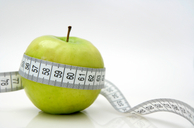 When winter is upon us most enter into it saying “I’m going maintain my healthily eating habits this time...” but with the colder weather and earlier nights most people find themselves resorting back to those comfort foods and before they know it the winter period has again derailed their healthy intentions! With spring just around the corner it’s time to get back on track! Here are some helpful hints: 1. Remove all calorie dense “extra” foods from your diet such as biscuits, chocolate, lollies, cream, hot chips and cooked deserts (i.e apple pies). 2. Increase exercise- aim for 30mins of exercise most days. 3. Find social activities to do with friends that don’t involve eating such as going for a walk rather than a coffee3 and cake. 4. Reduce alcohol intake - Remember that: 200mL of red/white wine or 355mL of full strength beer are a 30MIN WALK! - Replace with lower calorie drinks such as soda/tonic water, diet soft drink/cordial, unflavoured mineral water or vegetable juice. 5. Reduce portion sizes - Use a smaller plate and eat slowly 6. Break the eating out cycle - Most meals should be prepared and eaten at home as they’ll have more control over the portions and how the food is prepared. 7. Have a plan - Keep a food diary for 2 weeks. It can be a real eye opener to what and how much you are eating. - Set realistic goals especially if trying to lose weight. Healthy weight loss is only 0.5kg and 0.5cm per week. Do you need assistance to get back on track for this Spring and Summer season. Talk to a Simply Nutrition Dietitian today and find out how we can help you. (Click Here To Contact Us) 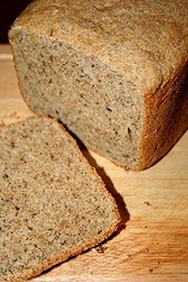 Carbohydrates are often blamed for a number of conditions including overweight and obesity. In truth, carbohydrates are actually very healthy and our body needs a certain amount of carbohydrates everyday to function effectively - carbohydrates provide the only source of fuel to a number of vital organs including the brain and the central nervous system. Carbohydrates and a Healthy Body Weight: Weight gain or weight loss all comes down to an energy balance. If your body is receiving more energy than it is using - weight gain will result. If your body is receiving less energy than it is using - weight loss will occur. Energy In (Food) is more than Energy Out (Exercise) = Weight Gain Energy In (Food) is less than Energy Out (Exercise) = Weight Loss Carbohydrates are sometimes said to be a cause of weight gain (or an inability to lose weight), whereas in reality, it is the overall calorie intake (our ‘energy in’) that is the key dietary consideration for weight loss (or preventing wt gain). In other words, weight gain comes from too many kilojoules (or calories), which can come from carbohydrate, fat or protein sources. The following lists explain the amount of kilojoules (or calories) that we get from various components of our diet: Macronutrient Kilojoules per gram Fat : 37 (9 cal) Alcohol : 29 (7 cal) Protein : 17 (4 cal) Carbohydrates : 6 (4 cal) Carbohydrates actually have the least amount of calories per gram! This shows us that it is much easier to eat more kilojoules or calories if we eat higher amounts of fat and alcohol rather than carbohydrates! Ok, so if carbs are so good for you, why do Low Carbohydrate Diets work? Although the claims might sound convincing (and you may have even had some weight loss with low carb diets) - there is no evidence that low carbohydrate diets are more effective than high carbohydrate diets for long-term weight loss. In the short term, low-carbohydrate diets may cause weight loss because by cutting out carbohydrates you are cutting out food (and in doing so, reducing your overall energy or calorie intake). As well as this, if you stop eating carbohydrates, your body will use its stored carbohydrates (called glycogen) for fuel. A large amount of water is needed to release glycogen from storage - which means that most of the rapid weight loss that occurs with a carbohydrate-restricted diet is actually from losing water - not fat. What are the negative effects of avoiding carbohydrates? Yes, that’s right, you might actually be doing more harm than good by following a low carbohydrate diet. Low carbohydrate diets can lead to a restriction of healthy foods (such as wholegrains), which are importance sources of vital nutrients. Low carbohydrate diets tend to be higher in fat - these diets can increase your risk of cardiovascular disease and may also be low in Vitamin E, Vitamin A, thiamine, B6, folate, calcium, magnesium, iron, potassium and dietary fibre! Common side effects of low carbohydrate diets include constipation, bad breath, headaches and fatigue - these unpleasant effects mean that people have trouble sticking with low carbohydrate diets for very long! Because most people have more difficulty maintaining weight loss, than they do in losing weight, it is important that any diet is sustainable in the long-term. A diet that is moderate in carbohydrates, fat and protein (in other words, a healthy, balanced diet) is usually much easier to maintain. So are carbohydrates a friend or a foe? A friend! But remember that too many calories from any of our macronutrients (carbohydrates, fat or protein) will result in weight gain! The best way to lose weight and keep it off is by a reduced-calorie diet with plenty of fruit, vegetables, whole grains, legumes and low-fat dairy products, along with daily exercise. References provided on request. |
Categories
All
Archives
October 2017
|
Ph: 1300 380 694 |
Fx: 07 3547 8449 |
Copyright © 2010-2024 - Simply Health Group t/a Simply Nutrition Dietitians & Simply Engage Occupational Therapy
Sunshine Coast | Caboolture | Brisbane | Gympie | Ipswich | Australia
Sunshine Coast | Caboolture | Brisbane | Gympie | Ipswich | Australia

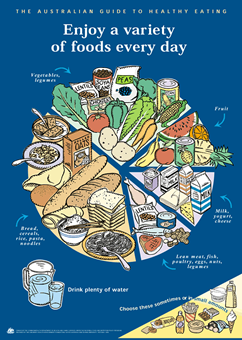

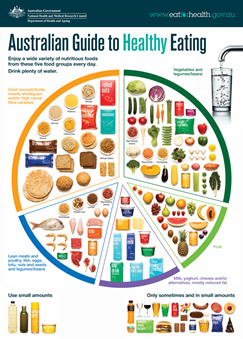
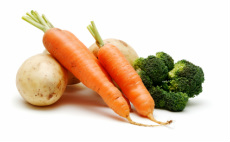
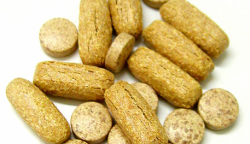
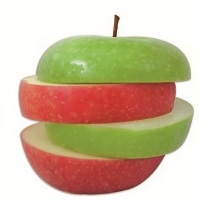



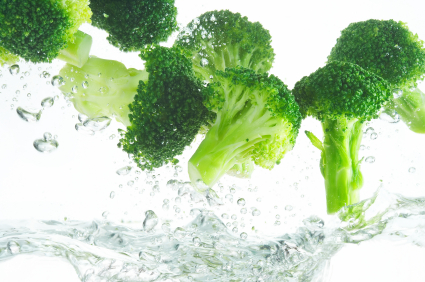
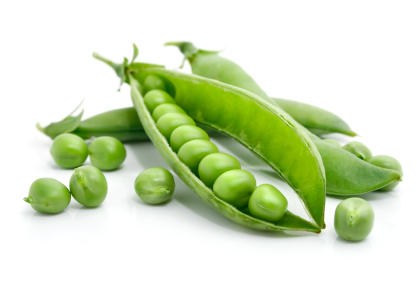

 RSS Feed
RSS Feed
